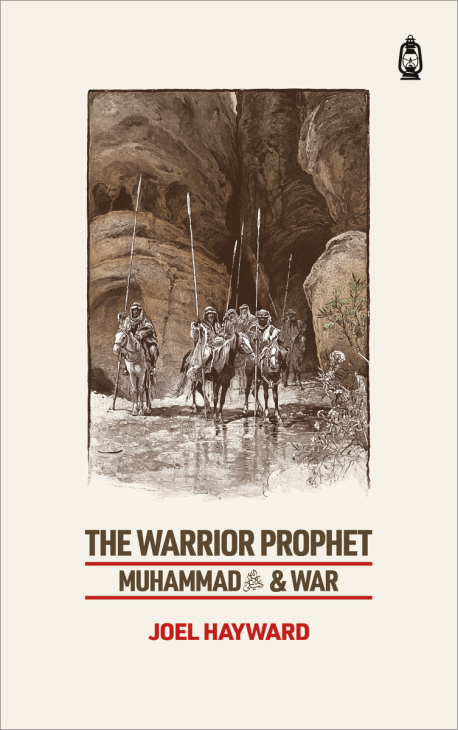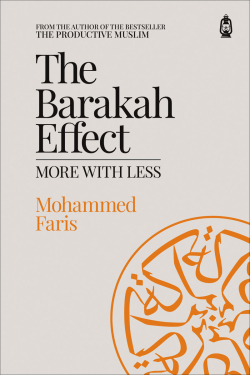The Warrior Prophet
Muhammad & War
Hardback
457 pages / Published: 2000
£30.00 tax incl.
- Usually despatched within 24 hours
- In Stock
Given the Prophet Muḥammad’s immense impact on history, surprisingly few books specifically analyze his understanding and employment of warfare as an economically, politically, and socially transformational process, even though he was continuously at war for a decade and initiated around eighty armed missions, twenty-seven of which he led himself. Most Islamic biographies deal with this issue by using an understandable but insufficient logic: that because Muḥammad, as the Messenger of Allah, was the ideal and paradigmatic human, he must have been an ideal and paradigmatic military commander. His successes flowed from his prophetic status and his moral perfection. Following this logic and wanting Muḥammad’s behavior to conform to very modern ethical concepts and widespread (but not necessarily accurate) beliefs about the nature and conduct of war, the writers have inadvertently created a narrative which, in significant ways, departs from the account clearly and consistently revealed in the earliest extant Arabic sources. The writers’ narrative also removes the Prophet from his historical and cultural context and the realities of the harsh and competitive tribal society in which he lived.
Professor Joel Hayward sees this as an unhelpful explanatory tendency and believes that the modern depiction of the Prophet’s relationship with warfare — which presents him as being rather antipathetic to war, indeed as virtually a pacifist who only fought reluctantly in self-defense — cannot actually be sustained by an even-handed analysis of the early Islamic sources. A committed Muslim himself, Hayward agrees that Muḥammad was a moral and decent man who saw peace as a highly desirable state in which humans should live and as a goal worth pursuing. Yet Hayward has approached the Prophet’s understanding and employment of warfare from a different vantage point. He has painstakingly scrutinized the earliest Arabic sources impartially according to the strict standards of historical inquiry in order to ascertain whether Muḥammad’s actions, habits and methods can — when understood within their original seventh-century stateless Arabian context — provide any substantial and meaningful insights into the way that he understood and undertook warfare.
Hayward concludes that Muḥammad was an astute, situationally aware, and self-reflective man who created and communicated a believable strategic vision of a necessary and desirable future. That vision persuaded increasing numbers of people to follow him and risk everything willingly in the struggle to create the optimal conditions for their survival, security, and prosperity. In a competitive and conflictual environment with ubiquitous threats, warfare was necessary to make real the bold new world that he foresaw. Through original, meticulously researched, and rigorous analysis, Hayward covers all the raids and campaigns and demonstrates that Muḥammad correctly understood the necessity and utility of force and duly developed into an intuitive, effective, and victorious military practitioner who developed and enforced a strict moral code so as to attain his goals whilst safeguarding the innocent. This engaging, accessible yet deeply scholarly book makes a major contribution to strategic and military analysis and to the Prophet’s biography.
Name
Joel Hayward
Country
United Kingdom
Biography
Professor Joel Hayward, ZDaF, BA, MA Hons, PhD, is a New Zealand-born British scholar and author who currently serves as Professor of Strategic Thought at the Rabdan Academy in the United Arab Emirates. The daily newspaper Al Khaleej called him “a world authority on international conflict and strategy”. Kirkus Reviews said that he “is undeniably one of academia’s most visible Islamic thinkers”. He is considered to be one of “the world’s five hundred most influential Muslims,” with his listing in the 2023 edition of The Muslim 500 noting that “he weaves together classical Islamic knowledge and methodologies and the source-critical Western historical method to make innovative yet carefully reasoned sense of complex historical issues that are still important in today’s world.” Hayward has earned ijazāt (teaching authorizations) in ʿAqīdah (Islamic theology) and Sīrah (the Prophet’s biography). He has held various academic leadership posts, including Director of the Institute for International and Civil Security at Khalifa University (UAE), Chair of the Department of Humanities and Social Sciences (also at Khalifa University), Head of Air Power Studies at King’s College London, and Dean of the Royal Air Force College (both UK). He is the author or editor of eighteen books and major monographs and dozens of peer-reviewed articles, mainly in the fields of strategic studies, military history, the Islamic ethics of war and conflict, and Islamic (esp. seventh century) and western (esp. twentieth century) history. His best-selling books include a major analysis of German airpower during the Stalingrad campaign and a thematic investigation of Horatio Lord Nelson and his way of war. His recent books include Warfare in the Qurʾan (2012), War is Deceit: An Analysis of a Contentious Hadith on the Morality of Military Deception (2017), Civilian Immunity in Foundational Islamic Strategic Thought: A Historical Enquiry (2019), and The Leadership of Muhammad: A Historical Reconstruction. The latter won the prestigious prize of “Best International Non-Fiction Book” at the 2021 Sharjah International Book Awards. His newest book is The Warrior Prophet: Muhammad and War (2022). Professor Hayward has given strategic advice to political and military leaders in several countries, has given policy advice to prominent sheikhs, and was tutor to His Royal Highness Prince William, Prince of Wales. In 2011 he was elected as a Fellow of the Royal Society of Arts and in 2012 he was elected as a Fellow of the Royal Historical Society. In 2016 he was named as the “Best Professor of Humanities and Social Sciences” at the Middle East Education Leadership Awards. Professor Hayward is also active in the literary arts and has published three books of fiction and four collections of Islamic poetry.
Other titles
Title
The Warrior Prophet
Format(s)
Hardback
Edition
First
Pages
457
ISBN
9781800119802
Dimensions
156mm (H) x 234mm (W)
Reviews:
The Glory of Iqbal 1877-1938

















